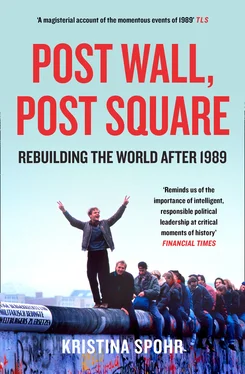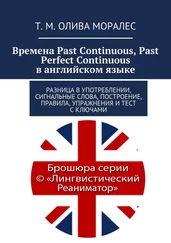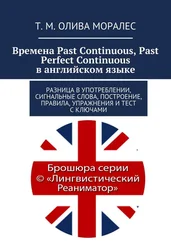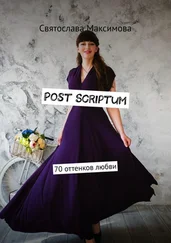But now, Mitterrand told Genscher, things had clearly moved on. With Europe in flux, old territorial questions had been awakened. One could not even rule out a return to 1913, and a world on the brink of war. It was imperative that unification, whenever it occurred, should be caught in the safety net of an even more consolidated European Community. If that integration process was disrupted he feared that the continent might return to days of alliance politics. And he made clear to Genscher that he saw Kohl as being disruptive, acting as the ‘brake’ on EMU. Up to now, he added, the Federal Republic had always been a motor in the European unification project. Now it was stalling. And if Germany and France did not see eye to eye at the Strasbourg summit in December, others would profit. Thatcher would not only block any progress on Europe but would also gang up with others against German unity.
Unlike Thatcher, Mitterrand accepted that German unity was unstoppable and, indeed, justifiable. But he insisted that this unstoppable process must be properly integrated within the EC project. ‘Europe’ not only helped absorb his ingrained suspicions of the Germans, he also felt it gave him leverage over Bonn: that was the benefit of subsuming the Deutschmark in the single currency. Whereas Thatcher, who was far more Germanophobe, had no such weapons in her armoury: she loathed the European project and abhorred a single currency. Indeed she was increasingly on the margins of European politics. Not that this worried the British prime minister. Indeed she seemed to love it when she was in a minority, convinced of her own rectitude.[132]
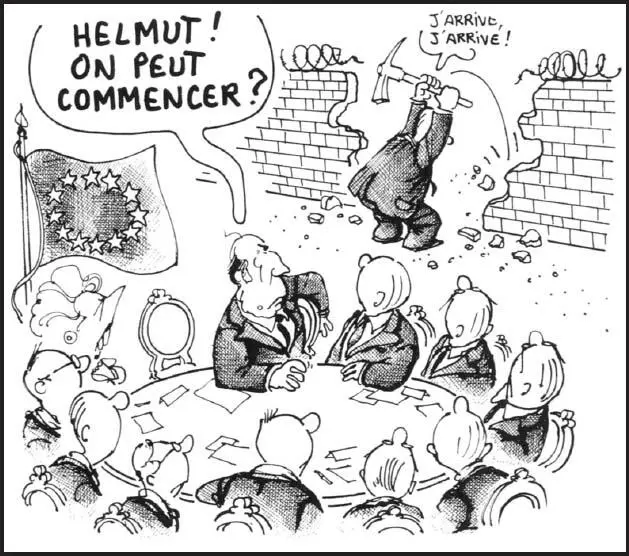
‘Helmut! Can we start?’ – ‘I’m coming, I’m coming!’: Priorities at the European Council in Strasbourg
This was the atmosphere in which the EC leaders gathered in Strasbourg on 8–9 December. Now Kohl, not Genscher, had to face the music – and he didn’t enjoy it. As he wrote later in his memoirs, he could not remember such a ‘tense’ and ‘unfriendly’ meeting. It was like being in court.[133] Unification was on everyone’s mind. Long-standing colleagues who had appeared so trusting of the FRG’s European-ness, now seemed terrified that Bonn would go its own way – like a train that was suddenly moving faster and faster and might go in a totally different direction from what anyone had expected. Kohl felt that the room was full of questions: was he still trustworthy? Was the FRG still a reliable partner? Would the Germans remain loyal to the West? Only the leaders of Spain and Ireland embraced the idea of German unification wholeheartedly. Kohl felt Belgium and Luxembourg would not cause problems. But everyone else had their fears and did not conceal them. Giulio Andreotti of Italy openly warned of ‘pan-Germanism’; even Kohl’s fellow Christian Democrat, Ruud Lubbers of the Netherlands, could not hide his distaste for Germany’s unification ambitions.[134]
But it was Thatcher who really got under Kohl’s skin. Her hobby horse throughout the two days was ‘inviolability of borders’. She brought it up in the first working meeting, and Kohl was greatly irritated because he sensed that her target was not Poland’s western border but the divide between East and West Germany. Over dinner that evening, haggling over the wording of the summit communiqué, Thatcher even threatened to veto the whole thing if the CSCE principle of ‘inviolability of borders’ was not explicitly spelled out. Kohl again lost his temper, angrily reminding her that EC heads of government had on numerous occasions affirmed what she was now questioning: German unification through self-determination according to the Helsinki Final Act. Thatcher erupted: ‘We have beaten the Germans twice! And now they’re back again!’ Kohl bit his lip. He knew she was saying blatantly what many others around the table thought.[135]
He was particularly sensitive because he knew Thatcher and Mitterrand had held their own tête-à-tête earlier in the day. What he did not know was that during the meeting, she pulled out of her famous handbag two maps showing Germany’s borders in 1937 and 1945. She pointed to Silesia, Pomerania and East Prussia: ‘They will take all of this, and Czechoslovakia.’ Mitterrand played along with her at times – for instance saying that ‘we must create special relations between France and Great Britain just as in 1913 and 1938’ – but he also stated calmly that unification could not be prevented, adding ‘we must discuss with the Germans and respect the treaties’ that had affirmed the principle of unification. But Thatcher would have none of it: ‘If Germany controls events, she will get Eastern Europe in her power, just as Japan has done in the Pacific, and that will be unacceptable from our point of view. The others must join together to avoid it.’[136]
But they didn’t. When the communiqué was published it was clear that France and Germany had stuck together, firmly committed to both monetary union and German unification. What’s more, the others who had griped were all now on board.
On monetary union, the EC 12 ignored vehement objections from Thatcher, and took a new and important step towards creating a central bank and a common currency. They agreed to call a special intergovernmental conference in December 1990 – after completing closer coordination of economic policies under the Delors Report’s stage 1, scheduled for July, and getting through the FRG elections (to satisfy Kohl). Clearly the recent upheavals in Eastern Europe had added impetus to economic integration. Mitterrand argued that the Community needed to be strengthened to face the challenge of helping the ‘emerging democracies of Eastern Europe as they move toward greater freedom and to handle the growing prospect of German reunification’. This French-led consensus left Thatcher in her familiar position as the sole opponent of accelerated integration, extending also to her refusal to sign a Community Charter of Social Rights that everyone else happily approved. Its broad endorsement of labour, welfare and other workers’ rights was supported as an important counterweight to the strongly pro-business orientation of much of the integration agenda.[137]
In a separate statement, EC leaders also formally endorsed the idea of a single German state, but they attached some conditions which were intended to ensure that German unity did not cause European instability. ‘We seek the strengthening of the state of peace in Europe in which the German people will regain its unity through free self-determination. This process should take place peacefully and democratically, in full respect of the relevant agreements and treaties and of all the principles defined by the Helsinki Final Act, in a context of dialogue and East–West cooperation. It also has to be placed in the perspective of European integration.’ In other words, Western integration and pan-European security, underwritten by the United States, were integral to any process of German unification.
The EC statement did not ignore their ‘common responsibility’ for closer cooperation with the USSR and Eastern Europe in what was called ‘this decisive phase in the history of Europe’. In particular, it stressed the EC’s determination to support economic reform in these countries. There was also an affirmation of the European Community’s future role: ‘It remains the cornerstone of a new European architecture and, in its will to openness, a mooring for a future European equilibrium.’[138]
Kohl was enormously relieved. Despite all the arguments, his Ten Point gamble had paid off. With Europe and America fully behind him,[139] it seemed that he was now free to develop Deutschlandpolitik in the way he wanted.
Читать дальше
